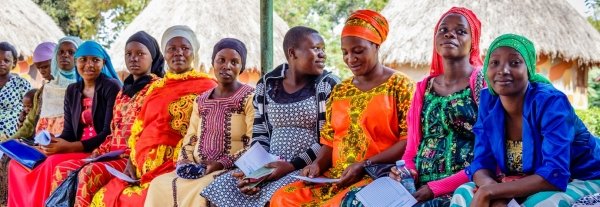MHI Quarterly Newsletter: Pride Month 2021

|
Letter from the Director
Happy Pride Month! Each June, communities around the world celebrate Pride Month to honor the struggle that lesbian, gay, bisexual, transgender, and queer or questioning (LGBTQ+)* people have faced in fighting for a more equal future. At the Maternal Health Initiative (MHI), we are proud to echo the Wilson Center in recognizing Pride Month to increase visibility for the fight for equality in the United States and around the world. We recognize the historic role of the LGBTQ+ community as advocates and providers of safe and quality sexual and reproductive health services and the global need to further improve efforts to protect the rights of LGBTQ+ people. This month, we have highlighted several relevant issues faced by the LGBTQ+ community, including access to quality health care and comprehensive sexuality education; the invisibility of LGBTQ+ people in research and the resulting impact on global health programs; and lessons learned from the stigma LGBTQ+ people faced during the height of the HIV and AIDS epidemic as we face anti-Asian stigma during COVID-19.
The Wilson Center is recognized as a Top 10 Think Tank in the world and as one of its programs, MHI holds itself to the highest standard in our work. We challenge ourselves to navigate new waters and evolve to better engage all people who experience sexual and reproductive health. We respect the recommendations of other experts in global maternal health and gender equity and have monitored the growing movement to use inclusive terms such as “birthing people” or “pregnant people” to recognize that not only women get pregnant and give birth. This movement is also being reflected at the policy level. The Biden Administration’s latest budget proposal used “birthing people” to discuss maternal health funding rather than “mothers,” in support of transgender and gender nonconforming people, as well as surrogates.
At MHI, we have incorporated the use of inclusive language when discussing maternal and reproductive health, particularly regarding biology around pregnancy and delivery. We are not abandoning women and girls or disregarding the value of mothers. We are allowing ourselves to rethink a system that erased the experiences of many LGBTQ+ people to help ensure that all people are considered as we discuss the policies and programs that are meant to support us all. As this is an evolving discussion, we welcome comments, suggestions, and queries at mhi@wilsoncenter.org.
This quarter also included several events, articles, and podcasts on gender and power dynamics, demographic trends and fertility rates, the value of stakeholders on universal health coverage, forced displacement in the Sahel, and bodily autonomy and self-determination. You can find this and more below.
*In this newsletter, and in MHI’s work, we use the term LGBTQ+ because it is the most common acronym used in the United States and the acronym currently being used by the Biden Administration. Other variations include other letters, such as “I” for Intersex, “A” for asexual, and “2S” for two-spirit (a term used by Indigenous communities in North America). In our work, the “+” is meant to add inclusivity and signify all other gender identities and sexual orientations that are not covered by the five initials in the acronym.
|



